Commendations & Commencements
Welcome

Dr. Jean M. Lawrence joined NIDDK as a program director in the Division of Diabetes, Endocrinology, and Metabolic Diseases overseeing the diabetes epidemiology portfolio. Lawrence earned her Doctor of Science in Maternal and Child Health from the Johns Hopkins Bloomberg School of Public Health, a Master of Science in Social Administration (Social Work) from Case Western Reserve University, and a Master of Public Health from the University of Pittsburgh. Prior to joining NIDDK, she was a senior research scientist in the Department of Research & Evaluation at Kaiser Permanente Southern California.

Dr. Julie Barthold joined NIDDK as program director for clinical and translational research in women’s urology, pediatric urology and neurourology within the division of Kidney, Urologic, and Hematologic Diseases. Barthold was previously a program director within the Division of Research Capacity Building at the National Institute of General Medical Sciences and has a diverse background in urology, including in clinical care, translational research, research administration, and organizational leadership experience.
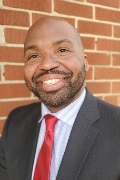
Dr. Jaron Lockett joined NIDDK to serve as director of the Office of Research Evaluation and Operations within the Division of Extramural Activities. Lockett previously served as a scientific program analyst and special assistant to the deputy director in the National Institute on Aging. Lockett is a graduate of the NIH Management Intern Program and has worked in many other positions across NIH.

Dr. Katrina Loh joined NIDDK as a new program official in the Division of Digestive Diseases and Nutrition where her program will focus on gastrointestinal diseases of children, particularly involving liver disease and transplantation. Loh is a board-eligible pediatric gastroenterologist with a special interest in pediatric liver transplantation and liver diseases. She completed her residency training in pediatrics at Connecticut Children’s Medical Center and fellowship training in pediatric gastroenterology and hepatology at Children’s National Hospital this past year, where she focused her research on nonalcoholic fatty liver disease in the setting of liver transplantation and ischemia reperfusion injury.

Neha Shah joined NIDDK as a scientific program analyst within the Division of Kidney, Urologic, and Hematologic Diseases. Before coming to NIDDK, Shah served as a faculty research associate within Johns Hopkins University’s Department of International Health where she was responsible for monitoring data quality of field surveys and analyzing survey information.

Jonathan Teinor joined NIDDK as a scientific program analyst within the Division of Kidney, Urologic, and Hematologic Diseases. Prior to his arrival at NIDDK, Teinor was the senior research program coordinator at Johns Hopkins University School of Medicine’s Division of Hepatobiliary and Pancreatic Surgery where he was responsible for key clinical duties such as program enrollment oversight and adherence to research protocols, operating procedures, and all associated regulations.
A Fond Farewell

Dr. James Hyde, program director in the Division of Diabetes, Endocrinology, and Metabolic Diseases, retired in December. Hyde came to NIH in 2000 from the University of Kentucky College of Medicine to oversee the Division’s research training and career development award programs. He then served as the program director of the neurobiology of obesity research portfolio and for the Diabetes Research Centers program, which supports and enhances interdisciplinary research in diabetes by providing core resources to improve the efficiency, productivity, and interdisciplinary cooperation of Center investigators.
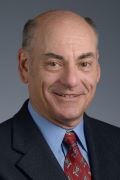
Dr. Robert Karp, program director in the Division of Digestive Diseases and Nutrition, has retired after 19 years in NIDDK and 30 years total at NIH. Karp oversaw NIDDK’s Inflammatory Bowel Disease Genetics Consortium since its inception in 2002, first as project officer, then as project scientist. He served on the working group overseeing the NIH Common Fund’s Human Microbiome Project for its 10-year duration, and was the first program director of DDN’s microbiome research portfolio. He also oversaw a portfolio of genomic and systems-biology studies of diseases within DDN’s mission. He promoted studies of human diseases using genetically tractable model organisms, such as fruit flies, nematodes, and zebrafish, and worked with scientific review officers at NIDDK and the NIH’s Center for Scientific Review to improve the quality of review of genomic research proposals.
Four council members have retired from NIDDK’s Advisory Council:
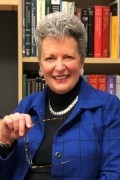
Dr. Lisa Guay-Woodford served on the Kidney, Urologic and Hematologic Diseases subcommittee. She is a professor of pediatrics and holds the McGehee Joyce Chair at Children's National Hospital in Washington, D.C., where she also serves as director of the Center for Translational Research and the Clinical and Translational Science Institute. Guay-Woodford is an internationally recognized expert in the pathogenesis of inherited renal disorders, particularly autosomal recessive polycystic kidney disease.
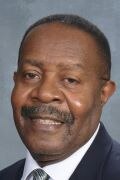
Richard Knight served on the Kidney, Urologic and Hematologic Diseases subcommittee. He continues to serve as co-chair of the patient engagement subgroup for NIDDK’s strategic plan, co-chair of the community engagement committee on NIDDK’s Kidney Precision Medicine Project, and as a member of the Scientific Registry for Transplant Recipients review committee. Knight is an instructor in management and business policy at Bowie State University’s College of Business and serves as president of the American Association of Kidney Patients. He is a former hemodialysis patient who received a kidney transplant 14 years ago.
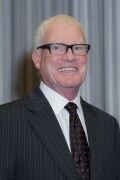
Thomas F. Nealon III served on the Digestive Diseases and Nutrition subcommittee. Nealon is an adjunct professor at the University of Miami School of Law’s Real Property Development program and a fellow of the American College of Real Estate Lawyers. Until recently, he was the president and CEO of the American Liver Foundation and vice chairman and director of legal affairs for LNR Partners, LLC.

Dr. Jeffrey E. Pessin served on the Diabetes, Endocrinology, and Metabolic Diseases subcommittee. He is director of the Diabetes Research Center at the Albert Einstein College of Medicine and the Judy R. and Alfred A. Rosenberg Professorial Chair in Diabetes Research. Pessin’s NIH-funded research investigated the role of inflammatory responses in adipocyte-programmed cell death, regulation of liver lipogenesis in obesity and fatty liver disease, and exploration of novel signaling pathways in skeletal muscles using rodent model systems.
In Memoriam
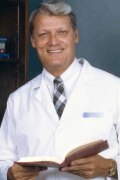
Dr. Robert W. Schrier, renal physician and former member of the NIDDK Advisory Council, died on January 23. A prolific principal investigator on NIDDK-funded grants from 1986-2014, Dr. Schrier contributed greatly to his field, including research on polycystic kidney disease, kidney failure, and the regulation, release, and action of the hormone vasopressin. He also helped develop NIDDK’s previous strategic plan. He served as president of the American Society of Nephrology, the International Society of Nephrology, and the National Kidney Foundation – the only person to have served in all three roles. Dr. Schrier’s research has led to more than 1,000 publications and his work, Schrier’s Diseases of the Kidney, is used by clinicians and academicians around the world.
Congratulations

Dr. Behdad Afzali, section chief in the Kidney Diseases Branch, was named to the Stadtman Tenure-Track Investigators Program for his work on transcriptional regulators of immune cells that result in inflammation of the kidneys, which can be followed by irreversible scarring and loss of kidney function. Afzali plans to develop strategies that manipulate the balance between inflammatory and regulatory immune responses to minimize or prevent kidney scarring.

